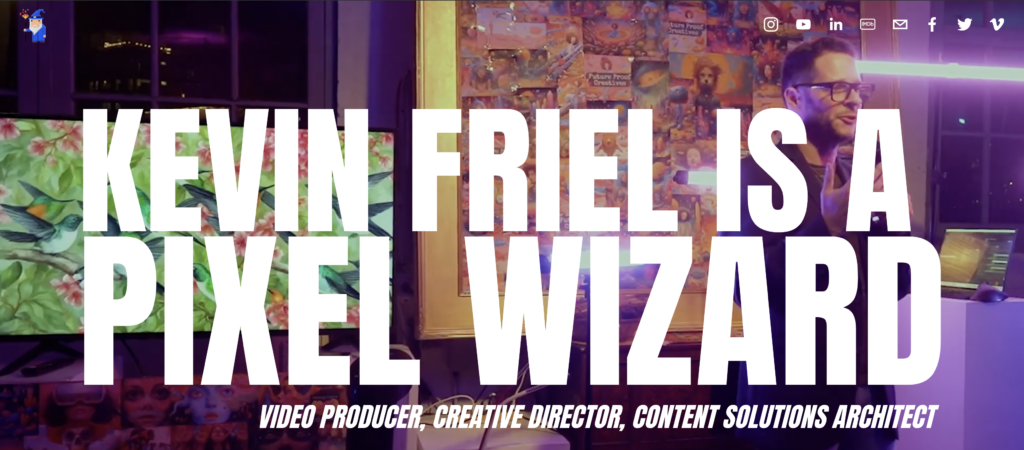
<aside> <img src="notion://custom_emoji/3b7b79b0-95af-4500-931c-e5c63e5df242/13cc6f79-9a33-80d3-80b3-007a3152af4b" alt="notion://custom_emoji/3b7b79b0-95af-4500-931c-e5c63e5df242/13cc6f79-9a33-80d3-80b3-007a3152af4b" width="40px" />
Step into Kevin Friel's Vancouver voltron den and you'll find yourself at the beating heart of a creative revolution. Amidst a labyrinth of Nanlite tubes and more cameras than a Tarantino flick, the dude they call the Pixel Wizard is busy rewiring reality one photon at a time.
</aside>
If you told me a year ago that one of Dune's VFX coordinators would be revolutionizing indie production from a corner of Vancouver's tech scene, I might have been skeptical. But watching Kevin work his magic with this system, it all makes perfect sense. He's taken everything he learned in the Hollywood machine and remixed it into something entirely new.
They call him the Pixel Wizard, and at first I thought it was just another tech scene nickname. But spend five minutes watching him orchestrate this setup - lights dancing in perfect sync with audio, backgrounds morphing based on conversation keywords, cameras capturing every angle while AI weaves it all together - and you realize it's not clever branding. It's prophecy.
kevin friel is a pixel wizard

"Check this out," he says, typing a quick command that transforms the entire space into what looks like the inside of a neural network. The lights pulse with an intelligence that feels almost alive. This production setup - is a glimpse into the future of creative technology.
Kevin didn't set out to build a revolution. He just kept asking "what if?"
What if we could give indie creators access to Hollywood-grade production value?
What if we could make environments that respond to human creativity in real-time? What if we could build systems that amplify rather than replace human artistry?
Those questions led him from the structured world of big-budget VFX into uncharted territory. "Most people think you need millions of dollars and a whole crew to create cinematic content," he tells me, adjusting a virtual slider that makes the lights dance. "We're proving you just need the right tools and a little bit of magic."